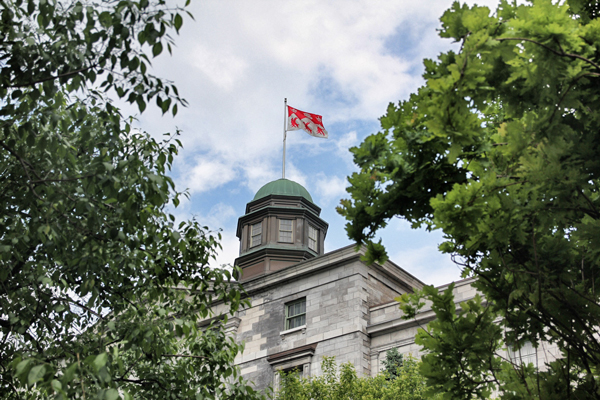 While today’s Convocation ceremonies were a celebration of the 1,700 graduating students, the University also took the time to thank some of its most dedicated educators.
While today’s Convocation ceremonies were a celebration of the 1,700 graduating students, the University also took the time to thank some of its most dedicated educators.
Established in 2000, The Principal’s Prize for Excellence in Teaching, is awarded to exceptional individuals who embody the best in teaching, supervising, advising and mentoring. The award is presented to one recipient in each of four categories: Faculty Lecturer, Assistant Professor, Associate Professor and Full Professor. Here are the 2015 winners:
John Stix: Teaching and learning at the same time
“The most important qualities a teacher should have are patience and an ability to listen to the students,” says John Stix, winner of the Principal’s Prize for Excellence in Teaching in the Full Professor category. “They have a lot to say.”
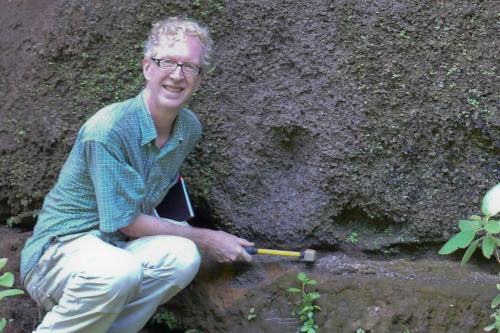 A member of the Department of Earth and Planetary Sciences since 2000, Stix has been fascinated by rocks and minerals since he was a young boy. “It was natural for me to study geology,” he says. “But it was my first geology class as an undergraduate at Dartmouth College that did it for me. The class approached geology from the then-emerging paradigm of plate tectonics, and the professor teaching the class was great.”
A member of the Department of Earth and Planetary Sciences since 2000, Stix has been fascinated by rocks and minerals since he was a young boy. “It was natural for me to study geology,” he says. “But it was my first geology class as an undergraduate at Dartmouth College that did it for me. The class approached geology from the then-emerging paradigm of plate tectonics, and the professor teaching the class was great.”
Today, Stix teaches everything from a class in natural disasters to volcanology to earth sciences applications.
Stix says the biggest challenge he faces in the classroom is the incredible diversity of students. “I teach many different groups of students – non-science students, geology undergraduates and graduate students,” he says. “I enjoy doing all of this, but it does require different approaches and a different mentality in approaching the courses and students.”
And when asked if he would recommend teaching as a profession, Stix says, yes, because the student-teacher relationship can be mutually beneficial. “It is a very rewarding experience, because not only do you learn a lot by teaching, you also can influence and nurture students as they learn and mature intellectually,” says Stix.
Andrew Hendry: Inspiration-based teaching
Whenever he steps in front of a class full of students, Andrew Hendry hopes to create a light bulb-moment for the next generation of biologists. “My approach to teaching is centered on the integration of two goals: to challenge students and to inspire their interest in the subject,” says Hendry, an associate professor at the Redpath Museum and in the Department of Biology. “My ultimate goal is that students walking out of my class are thinking ‘Wow – that was really cool. Just the sort of thing I want to study the rest of my life,’”
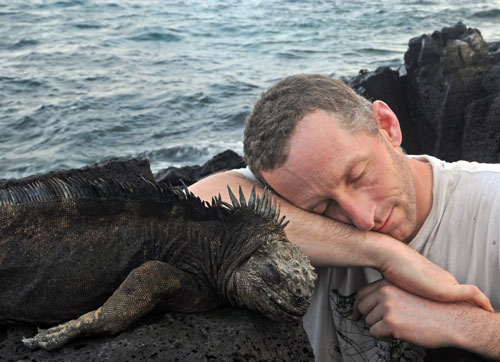 Hendry has adopted what he calls “inspiration-based teaching” as his model in the classroom. “Information-based teaching fails because most students quickly forget detailed information, no matter how good the teacher,” says the winner of the Principal’s Prize in the Associate Professor category. “It is much more important to challenge and inspire students with an engaging and inspiring narrative.”
Hendry has adopted what he calls “inspiration-based teaching” as his model in the classroom. “Information-based teaching fails because most students quickly forget detailed information, no matter how good the teacher,” says the winner of the Principal’s Prize in the Associate Professor category. “It is much more important to challenge and inspire students with an engaging and inspiring narrative.”
First, he says, lectures must be dynamic, engaging and inspiring. “My lectures – even in the largest classes – aspire to be a tour-de-force immersive experience that includes video, social media, hands-on demonstrations and performances,” says the man who employs everything from live snakes, full gorilla skeletons and interpretive dance as classroom aids.
He also integrates research into the curriculum as much as possible, being the first person to introduce individual research projects conducted in the laboratory into BIOL 111. This initiative “directly engages students in conducting experiments to test their own ideas in their very first semester at McGill,” he says.
Finally, Hendry creates immersive training experiences for graduate students, having spent the last seven years coordinating the Neotropical Environment Graduate Option that brings students to Latin America for immersive on-the-ground training and research on environmental issues in the neotropics. “An experience in the tropics is the most rewarding and inspiring experience possible for students interested in evolution, ecology and conservation,” says Hendry
Anne Kietzig: Mentoring learners, questioners and critical thinkers.
Anne Kietzig of the Department of Chemical Engineering, arrived at McGill in 2010, as much a result of a lifestyle choice as anything else.
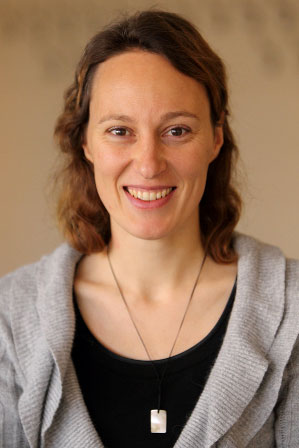 “About a year before I finished my PhD [at UBC], my PhD supervisors suggested applying in Edmonton where a new department was about to open. While I could not imagine myself living in Edmonton, I looked for a position in a city that I considered livable,” says the winner of the Principal’s Prize in the Assistant Professor category. “I saw an open position at McGill and applied, so my supervisors would leave me in peace. My application lead to an interview and that one was successful.”
“About a year before I finished my PhD [at UBC], my PhD supervisors suggested applying in Edmonton where a new department was about to open. While I could not imagine myself living in Edmonton, I looked for a position in a city that I considered livable,” says the winner of the Principal’s Prize in the Assistant Professor category. “I saw an open position at McGill and applied, so my supervisors would leave me in peace. My application lead to an interview and that one was successful.”
While Kietzig admits that in the classroom she can sometimes be “too demanding,” she says it is an offshoot of her desire to push students to be the best they can be.
“I challenge students to connect dots, to think instead of reiterating,” says Kietzig. “While one of the targets is definitely that they learn the course material, I want them to leave as more critically thinking people, who have not only learned new things about the subject matter but who question the world around them and build upon their existing knowledge, evaluate options critically and come to sound solutions.”
This is a teaching philosophy and a worldview that she traces back to her father, himself a teacher “who was known to be able to attract student’s curiosity and guide them through reflection to solutions.
“I think the most important quality a teacher should have is the ability to convey passion for the material taught and to teach skills beyond subject matter expertise – i.e. to educate conscious, critically thinking individuals,” says Kietzig
Teresa Rudkin: The doctor who was born to teach
When she isn’t seeing patients in her clinical practice at the CLSC Côte des Neiges, Dr. Teresa Rudkin is thinking about her students in the Faculty of Medicine. It is a balancing act that, by her own admission, isn’t always easy.
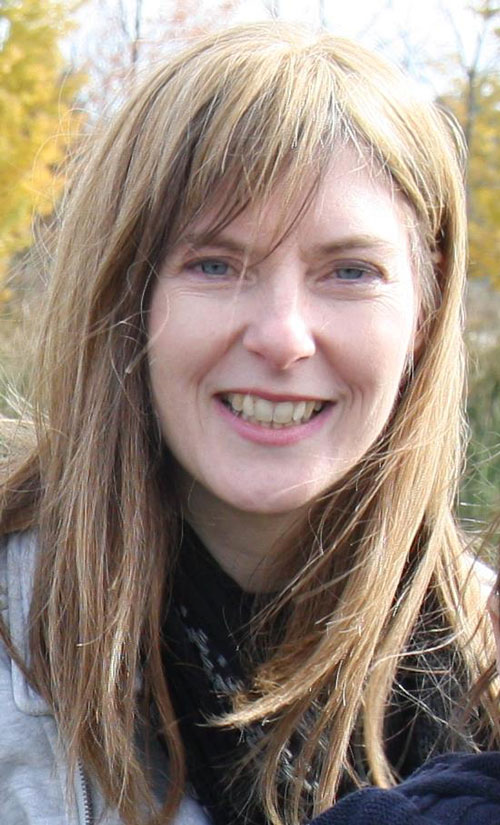 “I probably have the same challenges as other teachers who have to balance difference types of work responsibilities,” says Rudkin, who is also the Assistant Program Director in the Department of Family Medicine. “I struggle with being available to both my patients and my students.”
“I probably have the same challenges as other teachers who have to balance difference types of work responsibilities,” says Rudkin, who is also the Assistant Program Director in the Department of Family Medicine. “I struggle with being available to both my patients and my students.”
Clearly, however, it is a battle she is winning – which is why she was the recipient of the Principal’s Prize in the Faculty Lecturer category. Other rewards, though less formal, are more profound. “When students tell you years after you have worked with them how important you were to them and how you influenced their careers – that is a truly great reward.”
One of the keys to her success is seeing her two careers as complimenting one and other, not being in competition against each other. “I love being a physician, but I feel like I was ‘born’ to be teacher. When I was very young, I remember lining up my dolls and teddy bears in front of my blackboard and pretending to teach them,” says Rudkin. “There was never any question that teaching would be an important part of my medical career.”
Rudkin says she approaches each class “like theatre” because “I can have trouble concentrating during lectures, so I start by assuming my audience is the same.
“I try to engage my audience and I approach topics like stories. I choose my learning points carefully – making sure my sessions are practical and extremely relevant to my audience. I then try to think of creative ways to make presentations as interactive as I can… I think enthusiasm is the single most important quality a teacher can have.”
Related story
Superior staff members to be feted at Convocation
